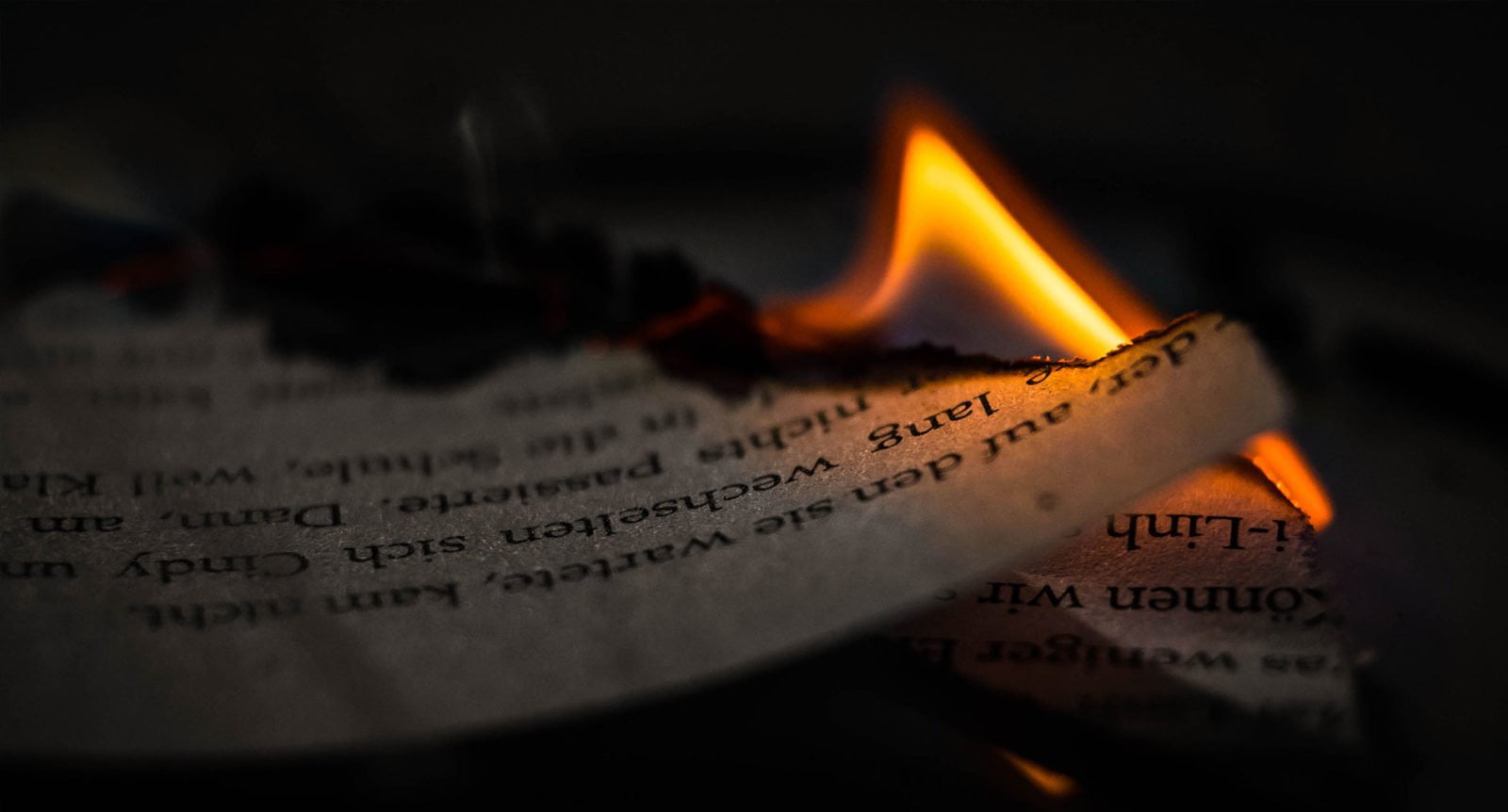By Milly Stilinovic
Famed Irish author and playwright Oscar Wilde once said that “it is what you read when you don’t have to that determines what you will be when you can’t help it.”
With this in mind, and as hundreds of countries unite on the 23 April to celebrate UNESCO’s World Book and Copyright Day, it is important to remember literature’s ability to open windows, broaden our minds, and contribute to a society’s cultural and material wealth.
Wilde also stated that “there is no such thing as a moral or an immoral book”, and that “an idea that is not dangerous is unworthy of being called an idea at all.”
However, it is this premise, throughout countless examples in history, that is all too often quashed.
Books, according to those who censored them, were considered a weapon, a dangerous thought provoker, whose destruction was a means to silence opposition, eradicate a culture, and further the ideology of those in power.
“An idea that is not dangerous is unworthy of being called an idea at all.”
Oscar wilde
Therefore, as we gather to celebrate the boundless freedoms we enjoy through literary expression, it is also important to note the sacrifices literature has made in a bid to continue to inspire us, educate us, and influence our choices.
Here are several dark moments in modern history when books were left to burn.
Communism’s censorship
Communism’s founding father, Karl Marx, once spoke in favour of Press Freedom. However, beginning as early as the 1920s, states that fell under communism did not display a strict adherence to the manifesto maker’s principles.
As such, censorship in Communist states was embraced as a means to eliminate any form of western influence, propagate nationalism, and centralise power. Censorship also became a mechanism to eradicate evidence of a societal struggle, or wrongthink against the party.
State-orchestrated councils, such as Glavlit in the Soviet Union, and the Red Guard in the People’s Republic of China, were tasked with seeking out and destroying any material that was considered “detrimental”, “immoral”, or “counterproductive” to the revolution.
History books were rewritten, photos doctored and, in a mass purge of libraries, archives and homes, books were burned – never to be reprinted.
Nazi Säuberung
On 10 May 1933 the German Student Union gathered in university towns throughout Germany to burn books as a means to further the Nazi Party’s nationalist ideology.
The Säuberung, or “cleansing”, sought to eliminate the influence of Jewish intellectualism, pacifism, Socialism, and any forms of religious diversion, on the future German Reich.
As the bonfires ravished decades of Jewish culture, Reich Minister Goebbels addressed the students at Opernplatz, a central city square in Frankfurt, stating that:
“The era of exaggerated Jewish intellectualism is now at an end…and the future German man will not just be a man of books but also a man of character and it is to this end we want to educate you.”
The burning of Mahabad
The Republic of Mahabad was a self-governing Kurdish state that was located in the territory of Mahabad City in northwestern Iran.
Though short-lived – the state existed between January and December 1946 – Mahabad sought to carve out an autonomous territory for Iranian Kurds. In this territory, Iranian Kurds would be free to promote their own culture, devise their own legal and education systems and print books in Kurdish.
However, as the political scale tipped in favour of Iran during the post-WWII era, the Soviets agreed to withdraw from the territory, leaving Mahabad to protect itself. The Iranian army invaded the territory, immediately shutting down Kurdish printing presses. They also banned the teaching of Kurdish, and burnt every Kurdish book they could find.
Senator Macarthy’s war on propaganda
During the Cold War, a wave of anti-Communist sentiment brought about a culture of fear and loathing in America.
Bolstered by the efforts of Wisconsin Senator Joseph McCarthy – whose infamous hearings aimed to weed out suspected Communists and their sympathisers from prominent positions in the US Government and, later, the arts – America engaged in a witch hunt against anyone considered pro-Communist.
It is under this environment that McCarthy was given the green light in 1953 to dispatch aides to hunt for “Communist” and “fellow traveler” books in US Information Service Libraries throughout Europe and Asia.
Despite receiving no guidelines as to which books were considered subversive, the libraries were accused of circulating propaganda in the form of Communist books. They were forced to adhere to blacklists. Some books were discarded and burned.
Brazil’s Golpe de ’64
In 1964, a civil-military coup overthrew Brazil’s left-wing President, João Goulart.
Supported by US forces, the coup ushered in a military regime that aligned its principles with those of the government.
To strengthen their anti-Communist profile in the eyes of Brazil’s citizens and their global allies, Brazil’s military order – much like their Chilean Junta counterpart – seized and destroyed any form of literature and academic work deemed “subversive.”
Works included anything considered radical, leftist, or revivalist in nature, along with works that were deemed anti-Christian.
